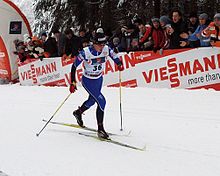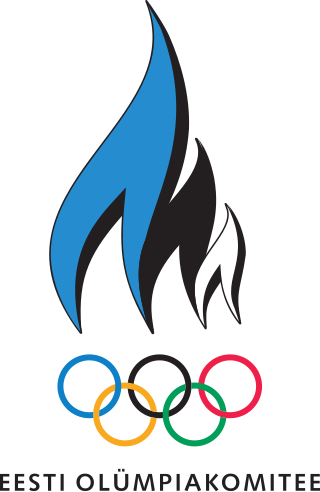Cross-country skiing

This is a list of notable Estonian sportspeople. The criteria for inclusion in this list are:





Estonian Fund for Nature or ELF is an Estonian environmental non-profit organisation.
Estonian literature is literature written in the Estonian language The domination of Estonia after the Northern Crusades, from the 13th century to 1918 by Germany, Sweden, and Russia resulted in few early written literary works in the Estonian language. The oldest records of written Estonian date from the 13th century. Originates Livoniae in Chronicle of Henry of Livonia contains Estonian place names, words and fragments of sentences. The Liber Census Daniae (1241) contains Estonian place and family names. The earliest extant samples of connected Estonian are the so-called Kullamaa prayers dating from 1524 and 1528. The first known printed book is a bilingual German-Estonian translation of the Lutheran catechism by S.Wanradt and J. Koell (1535). For the use of priests an Estonian grammar was printed in German in 1637. The New Testament was translated into southern Estonian in 1686. The two dialects were united by Anton Thor Helle in a form based on northern Estonian. Writings in Estonian became more significant in the 19th century during the Estophile Enlightenment Period (1750–1840).

Estonia first competed as a nation at the 1920 Summer Olympics, two years after the country declared independence from the then warring Russian and German Empires in 1918. The Estonian National Olympic Committee was established in 1923. The first Winter Olympics for independent Estonia were the 1928 Winter Olympics. Estonian athletes took part in the Olympic Games until the country was invaded and occupied by the Soviet Union in 1940. The 1980 Summer Olympics sailing regatta was held in Tallinn, Soviet-occupied Estonia. Since the end of the Soviet occupation in 1991, Estonia has participated in all Olympics. Estonia has won most of its medals in wrestling (11), weightlifting (7), cross-country skiing (7) and athletics (6).

The Estonian Olympic Committee (EOK) is responsible for the Estonia's participation in the Olympic Games.
The Estonian Athlete of the Year is an annual award presented by the Estonian Olympic Committee to one male and one female sportsperson judged to have delivered the best performance over the course of the year. The winners of the award, which was first conceived in the 1930s and has been presented every year since 1955, are chosen by an aggregated vote from sporting journalists, national sporting federations, and the public at large.

The following is an alphabetical list of articles related to the Republic of Estonia.

The Estonian Cup, also known as the Paf SuperCup for sponsorship reasons, is an annual cup competition for Estonian basketball teams. It is organized by the Estonian Basketball Association.
Sport plays an important role in Estonian culture. Estonia first competed as a nation at the 1920 Summer Olympics, although the National Olympic Committee was established in 1923. Estonian athletes took part at every Olympic Games until the country was annexed by the Soviet Union in 1940. The 1980 Summer Olympics sailing regatta was held in the capital city Tallinn. Estonia has won most of its Olympic medals in wrestling, athletics, weightlifting, and cross-country skiing.
100 great Estonians of the 20th century is a list of notable Estonians compiled in 1999 by Eesti Entsüklopeediakirjastus, Eesti Päevaleht, National Library of Estonia, Radio Kuku, and TV3.
Veljesto is an association of Estonian university students, founded 24 February 1920 at Tartu in Estonia.
Estonian Restoration of Independence, legally defined as the Restoration of the Republic of Estonia, was proclaimed on 20 August 1991. On that day at 23:02 local time, the Supreme Council of the Republic of Estonia, in agreement with the Estonian Committee, declared the illegal Soviet occupation and annexation of the country terminated, and proclaimed the full restoration of the independence of Estonia.
Friedebert Tuglas short story award is an Estonian literary award. The award was established in 1970 by Friedebert Tuglas itself. First recipients was chosen out in 1971 by Tuglas itself.
This is a list of the members of the Riigikogu, following the 1992 election.